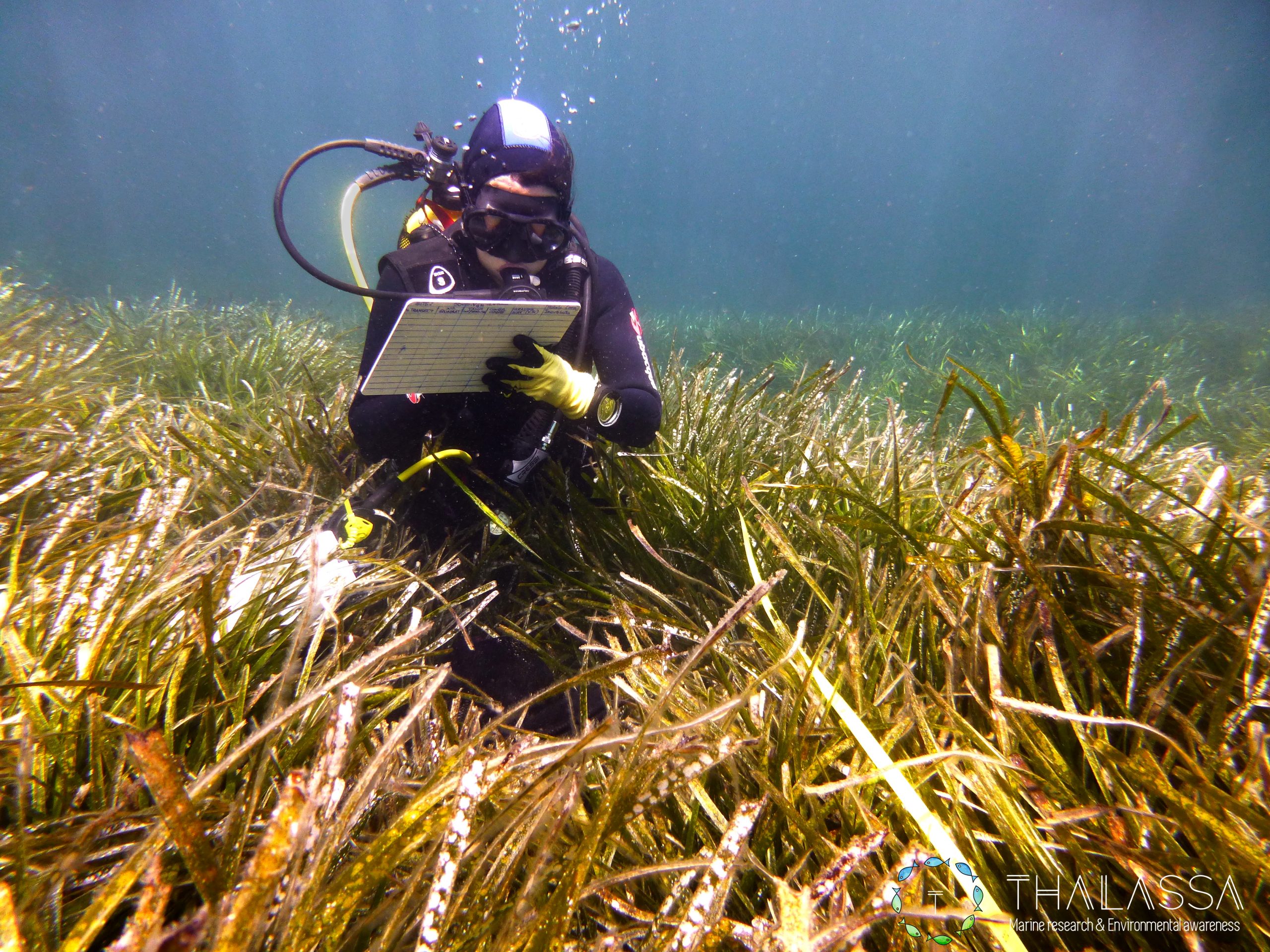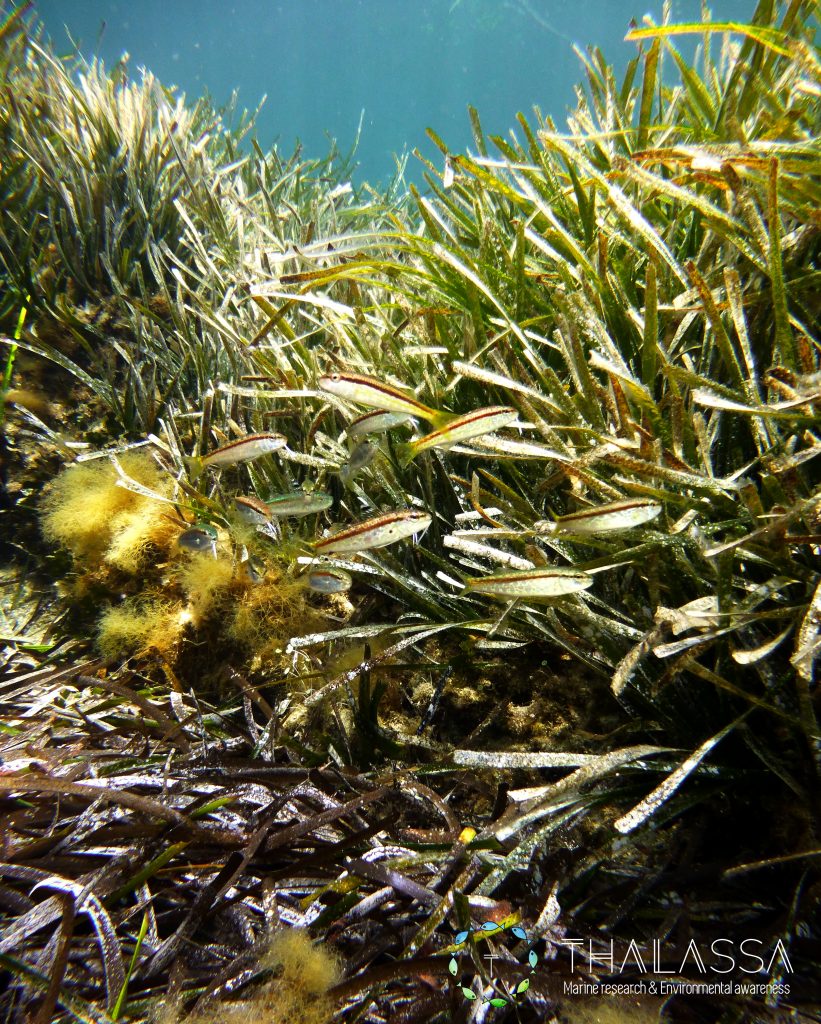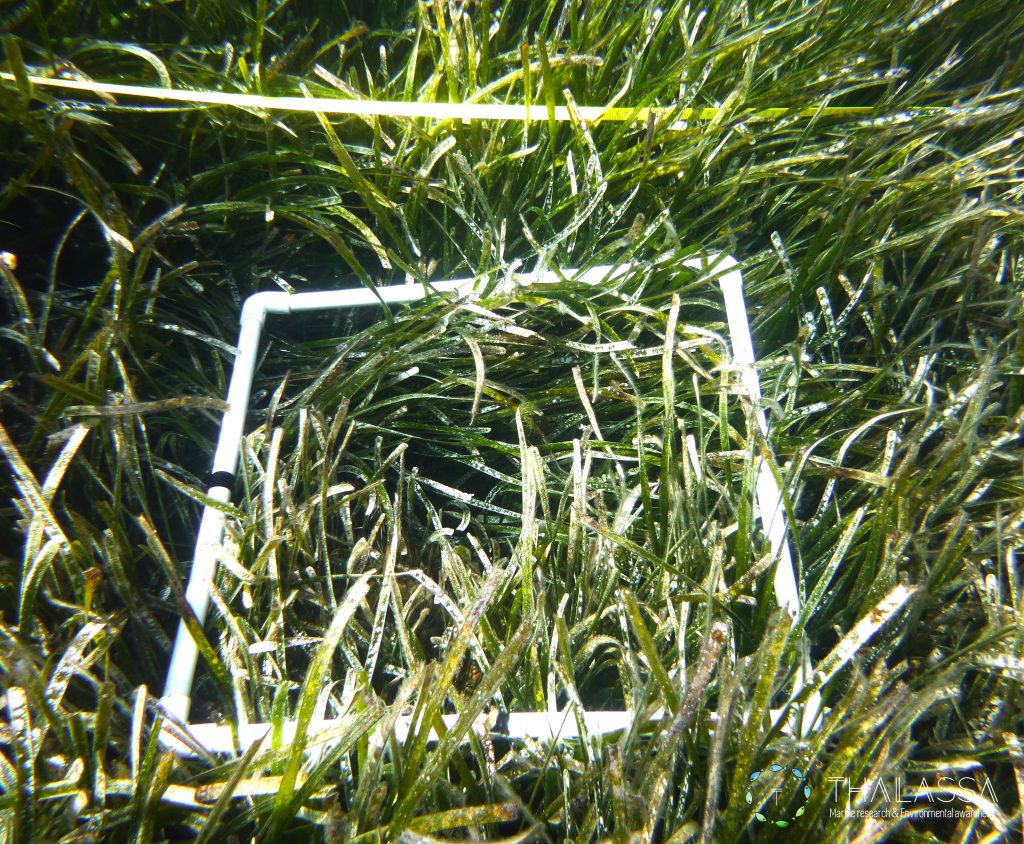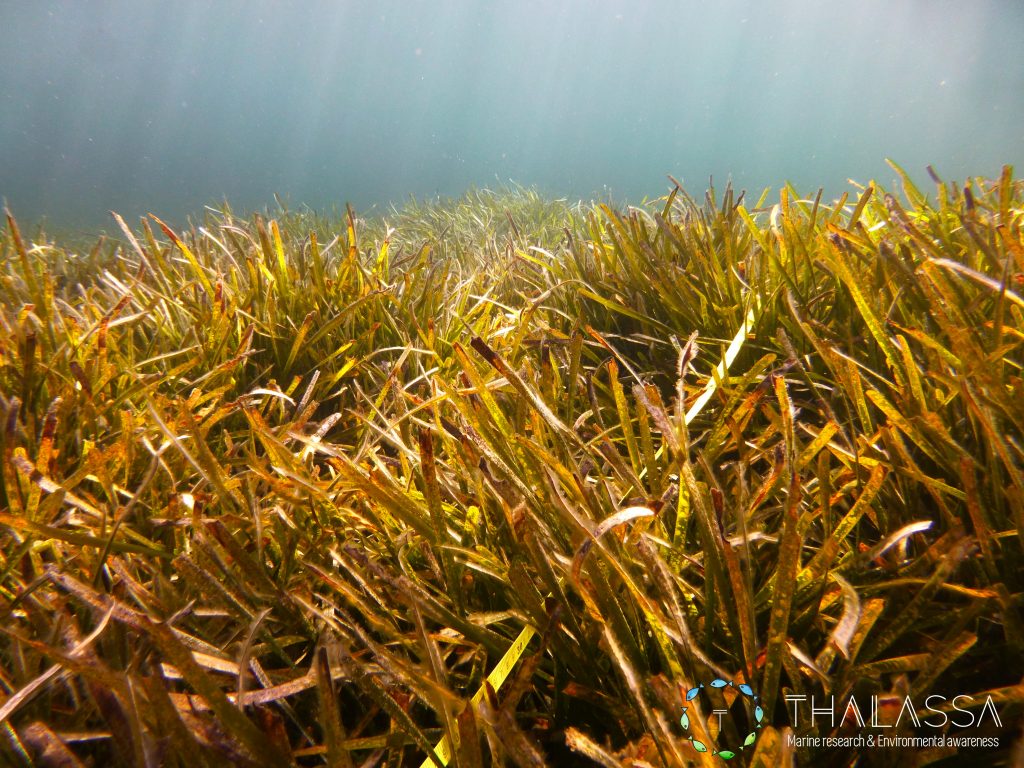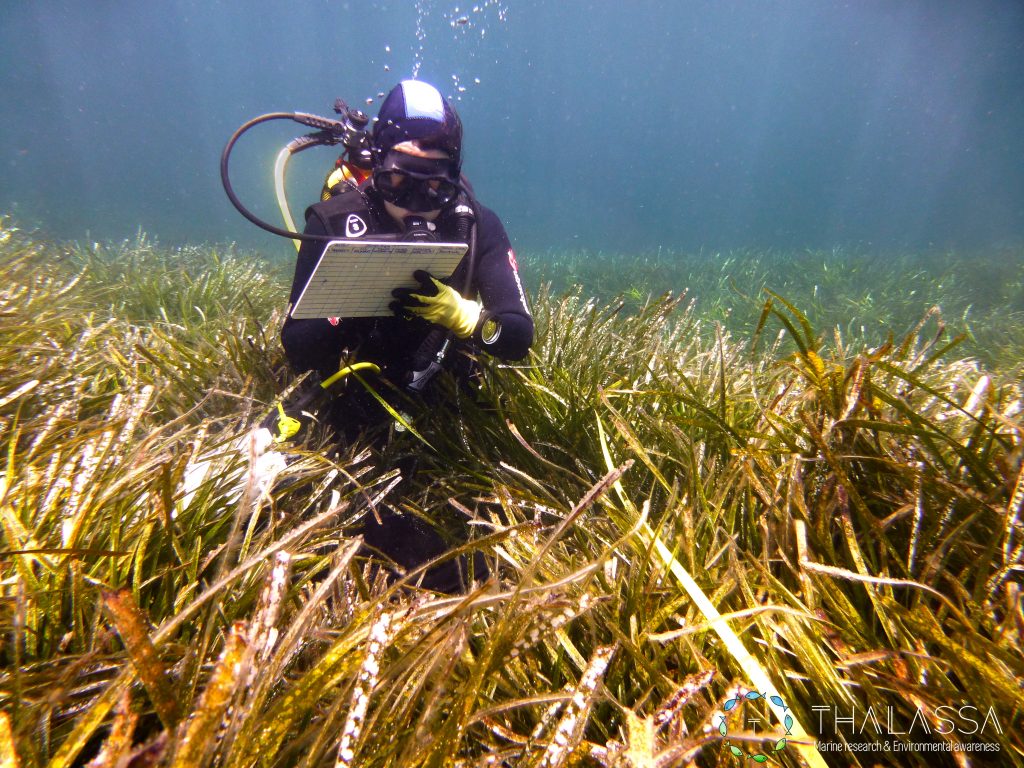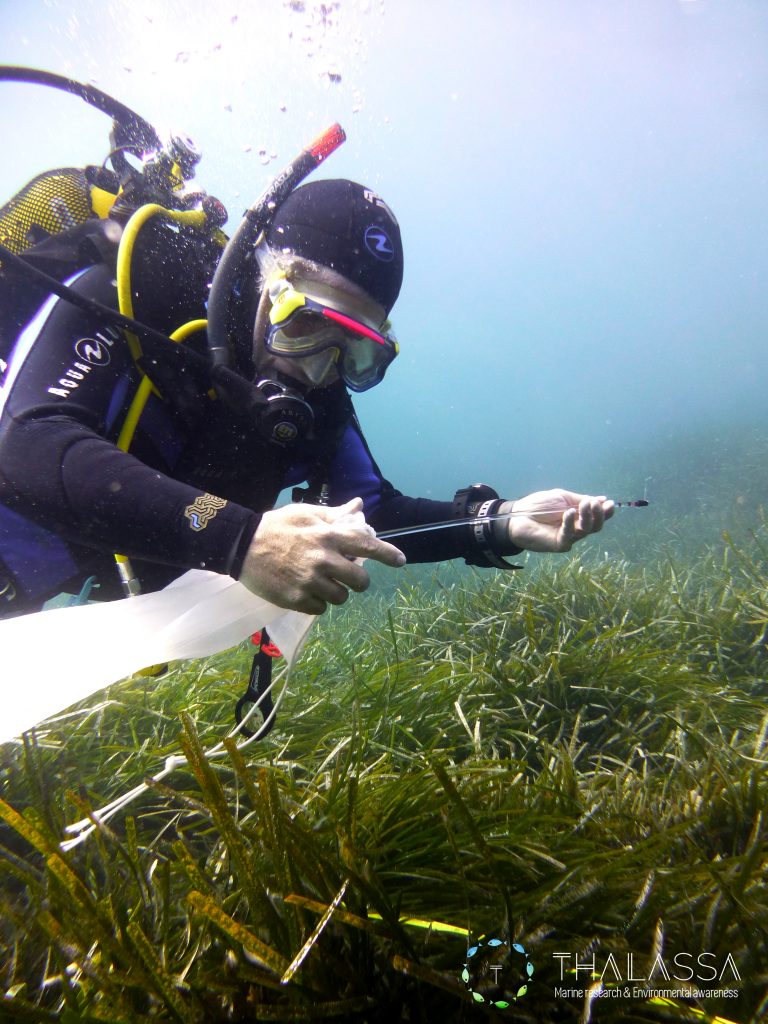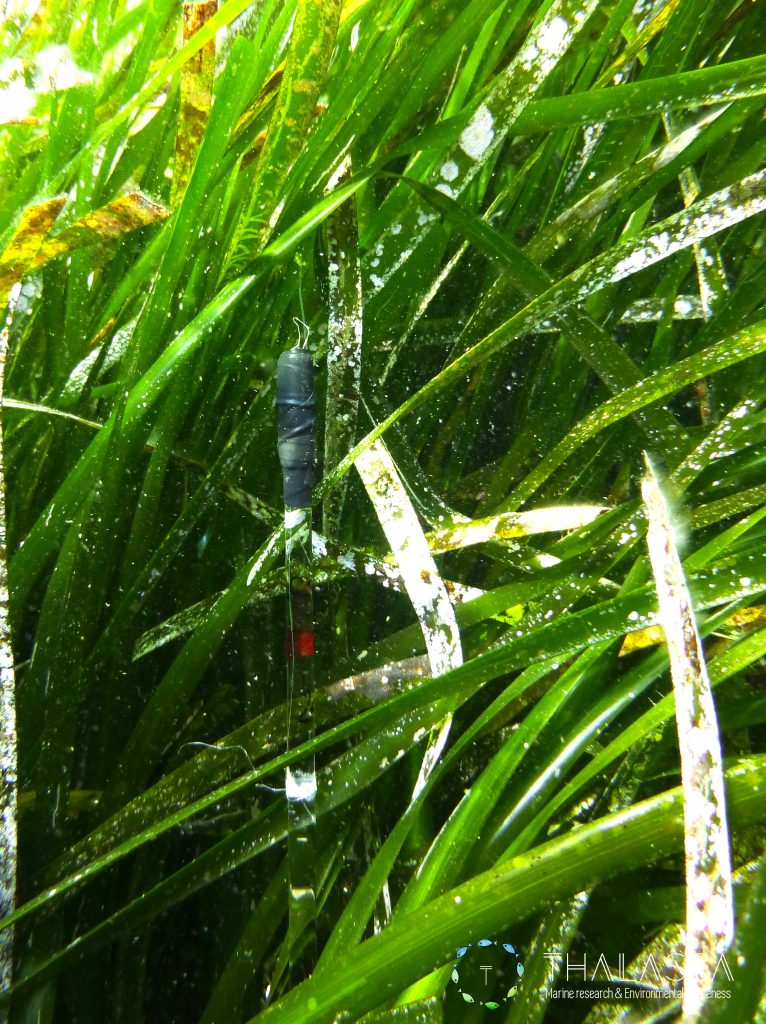THALASSA Marine research was assigned by the ECOSEAS laboratory to collect data on Posidonia oceanica beds in the Cote d’Azur region in the framework of a collaborative survey coordinated by the Smithsonian Institution’s MarineGEO program, to characterize the rich flora and faune of seagrass beds around the world. The field work carried out aimed at “identify factors that structure seagrass food webs and drive the flow of energy within them”.
Data collection consisted in:
– Seagrass percentage cover (quadrats 50 x 50 cm)
– Identificaton of mobile invertebrates
– Predation assay (squidpop)
– Fish density and biomass (Underwater visual census).
More about the project: https://marinegeo.github.io/assets/projects/seagrass-food-webs//MarineGEO_2019_Seagrass-Food-Webs_Proposal_v0.0.2.pdf


